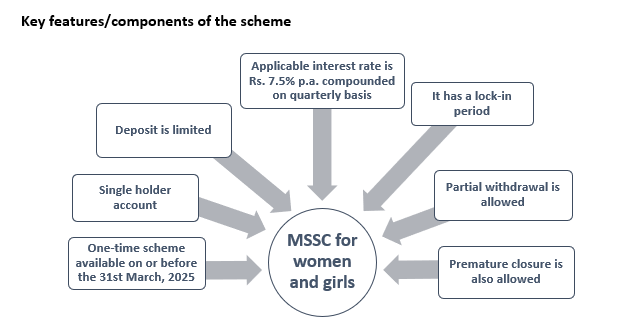Fundamental Analysis
Understanding the financial performance of a company is essential in equity screening for investing. The right selection of equity generates high returns. There are typically two primary types of equity analysis to help in equity screening – Fundamental and Technical analysis. Fundamental analysis is a method used to evaluate the intrinsic value of an asset, typically a stock or a company, by examining various qualitative and quantitative factors. It involves analyzing financial statements, economic indicators, industry trends, management quality, and other essential aspects to determine the true worth of an investment. Technical analysis is a method used in finance and investment that involves evaluating securities, such as stocks, currencies, or commodities, by analyzing statistical trends and patterns in historical market data. Unlike fundamental analysis, which focuses on a company’s financial health and intrinsic value, technical analysis concentrates primarily on past price movements, trading volumes, and market behavior to forecast future price movements.
Fundamental analysts mainly constitute of examine financial statements, financial ratio analysis, profit margin analysis, growth analysis, and comparative analysis.Financial statement analysis is conducted by analyzing financial statements such as the income statement, balance sheet, and cash flow statement. These documents provide crucial information about a company’s financial health, performance, and operational efficiency. Financial ratio analysis involves understanding a company’s financial health as it provides insights into its profitability, liquidity, solvency, and overall stability. It helps assess the company’s ability to generate profits, manage debt, and sustain its operations over the long term. Economic indicators, such as GDP growth, inflation rates, interest rates, and unemployment figures, play a significant role in fundamental analysis. They provide insights into the broader economic environment, influencing consumer behavior, business operations, and market conditions, and impact a company’s performance and prospects. The management team’s competence, strategic vision, corporate governance practices, and execution capabilities are crucial in fundamental analysis. A skilled and effective management team can drive company growth, manage risks, and make sound strategic decisions that positively impact the company’s long-term performance and value.
In emerging industries or companies with limited historical data, fundamental analysis relies on assessing management quality, the uniqueness of the business model, market potential, innovation, and future growth prospects. It might also involve benchmarking against established companies in similar industries. Fundamental analysts forecast future performance by analyzing historical trends, growth rates, industry dynamics, management strategies, and market conditions. They project future earnings, cash flows, and revenue on the basis of past performance and expected changes in the business environment. By examining a company’s financial health, debt levels, and management strength, fundamental analysis helps assess the risks associated with an investment. Understanding these risks is essential in managing a portfolio effectively. Software tools such as Bloomberg, Reuters Eikon, and Morningstar help in providing financial data of various companies to support decision-making in trading and investment. These softwares are comprehensive tools that provide real-time financial data, news, and analytics, allowing users to analyze stocks, bonds, and other financial instruments.
In conclusion, the fundamental analysis incorporates qualitative factors by assessing a company’s brand value, market perception, customer loyalty, competitive positioning, and innovation. These factors contribute to the company’s competitive edge and long-term sustainability, influencing its intrinsic value. Evaluating these fundamental aspects assists in identifying undervalued stocks, selecting robust performers, managing risks, and diversifying portfolios. Even for a short-term gain or aiming for long-term wealth accumulation, a comprehensive understanding of a company’s fundamentals is the basis for building successful investment strategies.
Financial Ratios
Financial ratios play a crucial role in quantitative analysis. Common ratios include the price-to-earnings (P/E) ratio, price-to-book (P/B) ratio, debt-to-equity ratio, and various profitability ratios. These ratios offer insights into valuation, profitability, liquidity, and solvency. Financial ratio analysis allows investors, analysts, and stakeholders to compare a company’s performance over time against its peers or within its industry. It involves using various ratios to assess different aspects of a company’s financial statements. The financial ratio helps to narrow down the scales and help in comparison with other companies. Financial ratio analysis helps identify potential investment opportunities by evaluating companies with strong financial indicators. A company demonstrating consistent revenue growth, healthy profit margins, and efficient debt management is an attractive investment opportunity. Ratios help in assessing the risk associated with an investment using different financial ratios that deal with the worthiness of the firm. A low debt-to-equity ratio or a high-interest coverage ratio might suggest a lower risk in terms of debt obligations, signaling a company’s financial stability. Investors can identify which companies are more efficient, profitable, or financially stable compared to their peers. This comparison guides you in choosing the best investment options. Ratios such as return on assets (ROA) or return on equity (ROE) provide insights into a company’s ability to generate profits and use assets efficiently. Companies with strong ratios in these areas might be considered better investment options due to their potential for sustained growth. By analyzing ratios specific to each sector, they can spread their investments to mitigate the risks associated with economic fluctuations.
Financial ratio analysis guides investment strategies by providing a deeper understanding of a company’s financial performance and position. Investors use these ratios to make informed decisions, identify opportunities, assess risks, and build a diversified portfolio tailored to their investment objectives and risk tolerance.
For More details about Financial Ratios, Click Here.
Evaluating the Balance Sheet and Cash Flow
Financial statement analysis involves a comprehensive examination of a company’s financial statements- income statement, balance sheet, and cash flow statements. Analysts assess metrics such as revenue, earnings, assets, liabilities, and cash flow to gage financial health and performance. The balance sheet assessment reveals a company’s liquidity through ratios like the current and quick ratios. A strong liquidity position, reflecting ample current assets to cover short-term liabilities, may indicate a company’s ability to meet its financial obligations. Companies with healthy liquidity positions might be considered more favorable for investment because of their ability to navigate short-term challenges.
Cash flow analysis is crucial in fundamental analysis because it reflects a company’s ability to generate cash from its operating activities, manage debts, invest in growth, and provide returns to shareholders. It offers insights into the company’s actual cash position, which is vital for its sustainability. Companies exhibiting stronger financial health and better cash flow management are often preferred in investment decisions. Both the balance sheet and cash flow analysis aid in risk assessment. Equity research reports are made by deriving financial content from financial statements and graphically representing them to analyze the financial performance of the firm. These reports help investors make investment decisions and understand the extent of risk associated with investments. A company with significant debt or inconsistent cash flows might pose higher financial risks. Understanding these risks allows investors to make more informed decisions and adjust their investment strategies accordingly.
Profit Margins and Growth Prospects
Profit margins are essential indicators of a company’s efficiency and profitability. They illustrate how well a company manages costs and generates profits from its operations. Evaluating both profit margins and growth prospects is essential for investors to gage a company’s profitability and potential for future expansion. A company with healthy profit margins and promising growth prospects may be seen as an attractive investment opportunity. Profit margins and growth prospects heavily influence investment decisions. Companies with strong and expanding profit margins and solid growth prospects are often favored by investors seeking companies with efficient operations, higher profitability, and the potential for sustained growth.
Profit margins reveal a company’s ability to manage costs and generate profits. Higher profit margins than industry peers might indicate that a company is undervalued, potentially leading to better investment decisions and higher returns. Growth prospects, such as revenue growth, earnings growth, and market expansion plans, are crucial for investment decisions. Companies with promising growth prospects are often preferred by investors seeking long-term investment opportunities. Companies with healthy growth prospects might be less susceptible to economic downturns, as growth can often cushion the effects of market fluctuations. Investing in companies with promising growth trajectories might offer more stability during turbulent times.
For More details about Profit Margins and Growth Prospects, Click Here.











